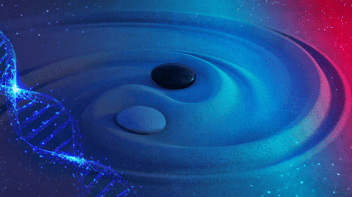The mystery of talent and creativity has long confounded scientists, but we know today that there are undeniable links between human ingenuity/talent and the DNA. This blog decodes the age-old question of where creativity and talent comes from, and how you can tap into your natural gifts to unlock your highest potential.
What you will learn -
-
- How genetics impact talent in individuals and the influence of the environment on talent development
- The links between genetic makeup and sporting/athletic talent
- Musical talent and genetic heritability
In a heartfelt letter to his sister, Wolfgang Mozart wrote, “My dear sister! I am in awe that you can compose so well, in a word, the song you wrote is beautiful."
The Mozart family was a prodigious clan with unmatched musical talent. The Bach family boasts of 20 highly revered musicians, with Johann Sebastian Bach being the most recognized. Throughout the history of mankind, there have been many talented families and siblings that have taken the music realm by storm. It makes one question if musical talent is generational, or in other words, genetic.
Talent development is a fundamental area of personal and career growth for most individuals. In order to actualize oneself and live up to one’s full potential, uncovering and nurturing inherent talents is of the essence.
So, is talent in the DNA?
Studies have uncovered multiple links between genes that are involved with cognition, memory, and learning with musical phenotypes, including ability and aptitude, listening practice, and other aspects of musical talent development. Studies have recognized that 80 percent of tone-deafness is genetically determined, and there are genes associated with high serotonin release, which are linked to musical prowess.
When we think of artistic creativity, clinical and forensic psychologist John Paul Garrison notes, "Based on all available information, it is very likely that the capacity for creativity is shaped by genetic influences –– it’s a complicated way of saying that creativity and artistic interests can almost certainly be inherited." In another study, researchers discovered more than 200 genes linked to sporting and athletic ability. In fact, as much as 66 percent of the differences in our sporting abilities could be explained by our genetic differences.
This leaves us at a pivotal point in understanding the impact of genetics on talent - what role does the environment play in determining talent and genius?
The Nature vs Nurture debate
It is fair to ascribe the impact of genetics on talent development, especially the passing down of inherent talents and general intelligence. But the environment plays a crucial role in talent development and nurturing, however, the degree of influence remains unknown. An analysis of 14 studies of top chess players and musicians concluded that only about 30 percent of the variation between performers could be accounted for by their hours of practice.
Environmentally, talent needs nurturing and lots of practice. A naturally talented kid may not find the ideal environment for nurturing inherent talents if they are born in a third-world country where opportunities and resources are limited. Early exposure to arts, foreign languages, and musical training are factors that greatly affect the development of talent.
Talent is a product of both genetics and the environment, and while genes may predispose one to natural gifts, the cultivation of talent takes place in accordance with the individual's environment and early childhood experiences.
Related Topic: Nature Vs Nurture: Just how much do genetics impact our lives?
Sport and Athletic Talent
Recognizing athletic gifts early on in an individual can uncover insights into the best training regime for athletes to fast-track their progress. Studies have shown that genetic factors underlie 30 to 80 per cent of the differences among individuals in traits related to athletic performance.
There are more than 200 genetic variations found to be associated with athletic performance, with many more that are yet to be discovered. These are associated with sporting abilities such as muscle structure or the body’s ability to use oxygen.
Athletic talent also requires environmental support, for example, a social environment with receptive coaches and families, and access to resources. Needless to say that genetics impacts a person’s sporting ability considerably.
Genetics of Musical Talent
A huge body of research indicates a high genetic impact on musical talent, as can be validated by musically adroit families the likes of Anoushka Shankar and step-sister Norah Jones (who had never even met until adulthood). Musical talent, however, is hard to define. Some researchers have linked getting chills from music to the ability to tap into emotion.
A study conducted by researchers at the University of Helsinki found that musical ability is 50% inherited. Perfect pitch or absolute pitch (AP) is the ability to instantaneously recreate or recognize a particular musical note without a reference tone. This is a rare but quantifiable trait, and a self-reporting survey concluded that "40% of respondents who began musical training at the age of 4 or younger reported possession of AP, and the percentage decreased steadily as the age of first training increased, to 3% of those who began studying music at the age of nine or older."
Studies have shown robust links between genetics and the ability to perfect pitch, but that doesn't mean that it's all because of the genes. Practice is an important factor that governs talent development such as recognizing pitch or rhythm.
Interestingly, there is a genetic component to the number of hours an individual is dedicated to practicing. But the question remains, does practice really matter in the face of genetic advantages? A meta analysis of studies discovered that "deliberate practice accounted for 26% of the variance in performance for games, 21% for music, 18% for sports, 4% for education, and less than 1% for professions."
It is safe to say that the degree of influence of genetics on musical talent is still largely undiscovered, but not insignificant.
Genetics and environment are powerful forces that shape an individual's innate traits, talent, and proclivities. As we move into a new era of work, it is inevitable that the study of genetics will play a pivotal role in nurturing natural gifts through powerful tools. Genleap offers a unique triangulation of genetics, astromancy, and psychometrics to facilitate self-discovery for you. With the inspiring insights drawn from a combination of these disciplines, Genleap helps you fast-track your self-discovery journey.






Leave a Comment